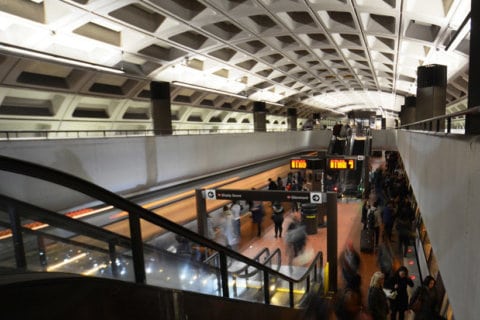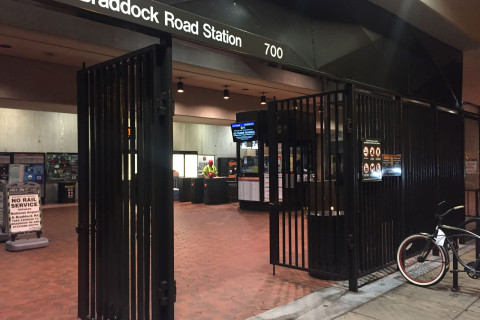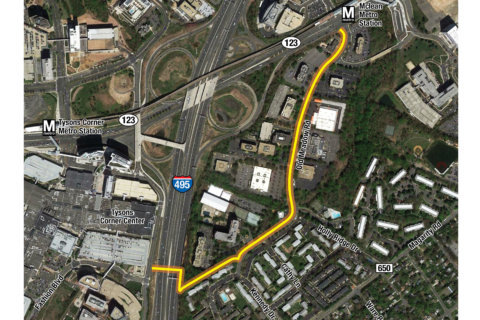WASHINGTON — Metro expects to lose about $23 million in ridership and other revenue in the next budget year, because riders have turned away during shutdowns and single tracking around major construction projects, such as the monthslong shutdown of Blue and Yellow Line stations this summer for platform repairs.
Still, Metro expects improvements to monthly unlimited ride passes and new visitor passes could help increase ridership (823,000 trips) and revenue ($3.9 million) despite the disruptions, according to newly released staff responses to Metro Board questions.
A discounted $2 flat rail fare on weekends would increase ridership even more (1.4 million trips), but cost the agency an estimated $3 million in revenue. Discounting the weekly bus pass to $15 would also increase ridership (700,000 trips), but cost the agency $1.8 million in fare revenue.
A proposal to expand rush-hour service by 30 minutes in the morning to 10 a.m. and 90 minutes in the evening to 8:30 p.m. would only cost Metro an estimated $1.4 million if the agency also extends peak fares for the same amount of time. Without a fare change, Metro estimates it would have a net cost of $5.4 million to benefit 11.7 million trips and create 1.2 million new trips.
Extending all Yellow Line service to Greenbelt and all Red Line trains to Glenmont to eliminate complicated mid-line turnarounds and increase service have a net estimated cost of $3.2 million and $1.1 million, respectively, for the budget year that begins in July.
Adding service, even at a relatively limited cost, is restricted, though, by a legally mandated 3 percent cap on subsidy increases for existing services implemented last year by Maryland and Virginia. Metro is experimenting with a new formula to distribute costs across local governments to meet that cap.
The budget includes $1 million to pay small subsidies for late-night rides to companies such as Uber or Lyft, since Metro does not plan to bring back previous service hours.
The budget is built around current rail hours, but a showdown is expected Thursday between D.C.’s representatives on the Metro Board and the other voting members.
The District hopes to fully restore late-night service, at an estimated cost of $45 million and disrupted preventive maintenance plans, while Maryland, Virginia and federal representatives oppose reverting to previous hours.
A potential compromise outlined by Metro staff last month that could have significantly more limited impacts while providing at least some additional service would have had the system keep the current hours of 5 a.m. to 11:30 p.m. Monday through Thursday, but split the difference on Friday and Saturday to keep trains running until 2 a.m. and also add back an hour of service Sunday mornings to open at 7 a.m.
It is not clear whether a compromise currently has any support, and due to the current procedural posture, the District has the power to force a return to previous hours at Thursday’s board meeting.
However, the budget due to be approved next month could also provide a resolution to the hours debate if no agreement is reached Thursday.
Metro’s largest union, Amalgamated Transit Union Local 689, released a statement Monday arguing that Metro “has taken long-term maintenance work and packed it into a short-term schedule not necessary to keep the system safe,” so the maintenance work should be slowed in order to restore late-night rail service.
Work done during overnight hours includes preventive maintenance work that Metro had not done for years. Additional round-the-clock work zones, including the Blue and Yellow Line shutdown this summer, address additional issues.
More track work planned
Metro now plans a significant increase in expected capital spending over the next three years compared with what was previously planned. Much of that covers projects that had been expected to take a few years longer, such as additional platform repair work and a move into new office space that will allow Metro to sell or lease some of its current property.
Metro has also delayed projected delivery of some of the final 7000 Series rail cars and accelerated power and train control cable work due to maintenance findings and availability.
New dedicated funding is expected to be used upfront to cover some of those additional costs. Metro is expecting to issue more bonds tied to the dedicated revenue a few years down the line.
The multiyear capital budget could have serious problems, though, if the federal government does not continue or expand a special $150 million per year contribution due to expire this fall.







